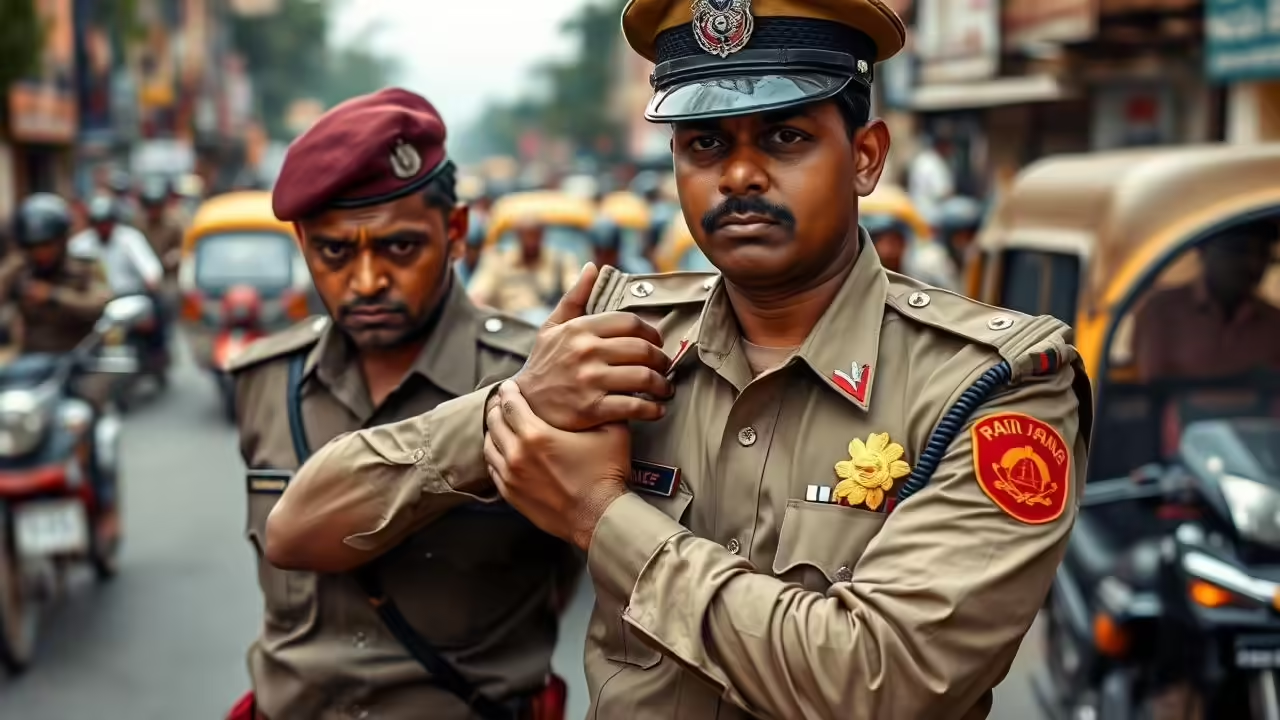
NGOCSTIP – Indian Police Just Declared War on Trafficking when they launched Operation Shakti in Nagpur and called on hotel operators to join the effort. In this campaign hotels have been asked to refuse hourly check‑ins and enforce strict identity verification for every guest. Authorities explained that suspicious behavior and staff vigilance can transform hotels into key allies in identifying trafficking attempts. Front desk staff are now trained to look for red flags such as nervous behavior, cash only payments, or multiple unaccompanied travelers. The hope is that hotels stop becoming unwitting venues for human exploitation including prostitution involving minors. This model of cooperation has drawn interest from other regions in India. Training sessions and informational materials have been distributed to dozens of local hotels. The message is clear: preventing trafficking requires community level action beyond traditional law enforcement.
In Operation Shakti, hoteliers play a crucial role as they stand on the frontline in the fight against child trafficking. Indian Police actively lead the effort and call for hospitality venues to become safe spaces. Officers instruct staff to reject hourly room bookings and to check identification from every guest. Hotel teams monitor guest behavior closely and screen for possible traffickers or victims. Authorities distribute checklists with red flags, such as mismatched personal details, refusal to communicate, or attempts to avoid showing documents. Patrol officers conduct regular follow-up visits to reinforce compliance. Hotel owners and managers take responsibility and treat this initiative as a moral duty, not just a regulation. Local NGOs step in to educate staff and support victims found during these efforts. This coordinated approach combines law enforcement, business accountability, and community action to remove gaps in the system and deny traffickers easy access to hotel spaces.
“Read about: This Human Trafficking Curriculum Is Waking Up a Generation, Find Out Why!”
Hotel personnel now serve as vigilant eyes and ears in their communities as part of a key strategy. Hoteliers actively monitor unusual guest patterns such as frequent check-ins at strange hours, lack of typical guest behavior, or large groups insisting on cash payments. Training workshops include role-play exercises that help staff practice how to approach suspicious situations with confidence and safety. Trainers instruct employees to firmly yet politely deny service to guests who refuse to show proper ID and to alert local authorities when necessary.
These direct actions help stop exploitation, particularly of minors. Hotels that follow these practices gradually build a reliable network of trusted venues. Law enforcement agencies connect with this network to cross-check guest information and identify suspicious trends. The government supports this model of decentralized vigilance by promoting proactive hospitality measures. As staff gain confidence and awareness, their efforts significantly strengthen the overall safety net across the city.
Public support for the initiative has remained strong. Local media in Nagpur interviewed hotel owners who promised full cooperation with police operations. Several hotel associations took the lead in offering to extend the guidelines to smaller towns across Maharashtra. Civil society groups applauded the bold approach of the Indian Police Just Declared War on Trafficking campaign and encouraged its expansion to railway lodges, guest houses, and even online home-stay platforms. Although some critics raised concerns about guest privacy, most citizens prioritized protecting human lives over preserving unchecked anonymity. To address these concerns, authorities provided hotels with secure reporting channels and reassured them about strict data handling protocols. Multiple establishments have already contacted police with credible reports. Neighboring districts began analyzing the Nagpur model for possible implementation. The success of this campaign in Nagpur now positions it as a potential blueprint for nationwide anti-trafficking efforts within the hospitality industry.
“Read more: One Secret Ingredient Makes This Salak Candy Irresistible, Try It Today!”
Hotels continue to face challenges as they try to balance guest service with increased vigilance. Many smaller establishments struggle to provide ongoing staff training or maintain effective guest monitoring. Legal experts emphasize the importance of protecting consumer rights while encouraging hotels to refuse hourly check-ins. They recommend that authorities implement clear and standardized guidelines. Indian Police Just Declared War on Trafficking campaign organizers collaborate with municipal leaders to design proper protocols and visible signage.
At the same time, officials work to prevent the unintentional stigmatization of vulnerable communities. Authorities consider adopting digital ID verification systems that respect guest privacy. NGOs support the initiative by offering training workshops, multilingual materials, and emotional assistance to hotel staff handling trauma-related situations. As hotels report more declined bookings and identify suspicious activity, local governments prepare to expand the program into additional regions. Police forces and hotel owners now provide a united front that may inspire similar actions in other parts of India and internationally.